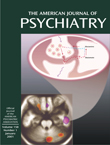To the Editor: I thank Dr. Steinberg for her interest in my article. However, in terms of its intended scope, there were no lacunae. The aim of the article, stated in the abstract, was to provide “a preliminary framework for a systematic and dynamic understanding of dissociation through a consideration of the theories of Hughlings Jackson.” My purpose was not directed toward description but toward a preliminary understanding of the phenomenon of dissociation. Nevertheless, such an attempt must be based on adequate description. Rather than neglect the Dissociative Experiences Scale (DES), I built my argument around it—or, more particularly—around the DES-T
(1), which might be seen as a distillation of the essential features of the Dissociative Experiences Scale.
In no way does it devalue the important work that has gone into building the descriptive catalogues of dissociation carried out by Dr. Steinberg and other researchers to remark that, at present, the term “dissociation” is used too loosely. It has been authoritatively observed that “it is likely that this unfortunately vague term is used to describe a broad range of phenomena”
(2, p. 1681), including imaginative activity/absorption, which relates to items in the Dissociative Experiences Scale. In this context, imaginative activity is conceived of as nonpathological dissociation. In my view, this conception is misleading. Imaginative activity is the opposite of dissociation in that it depends on a high level of voluntary, selective attention, whereas the ability to exercise voluntary, selective control of attention is impaired in dissociation. This is evident in Janet’s classic descriptions. It is also made explicit in ICD-10: “There is normally a considerable degree of conscious control over the memories and sensations that can be selected for immediate attention, and the movements that are to be carried out. In the dissociative disorders it is presumed that this ability to exercise a conscious and selective control is impaired, to a degree that can vary from day to day or even from hour to hour” (ICD-10, pp. 151–152). In conditions in which dissociation is a feature, selective attention is markedly impaired (e.g., reference
3).
Finally, my article had a second purpose: to renew interest in Jackson’s scientific approach to the study of mental illness, which he considered to be “really an experimental investigation of mind,” or self. Following Jackson, an understanding of all mental illness, not only dissociation, begins with a neurobiological model of mind, self, or personal being. After decades of neglect and an unfortunate split between psychological and biological approaches, important steps are now being taken down this investigative pathway.

